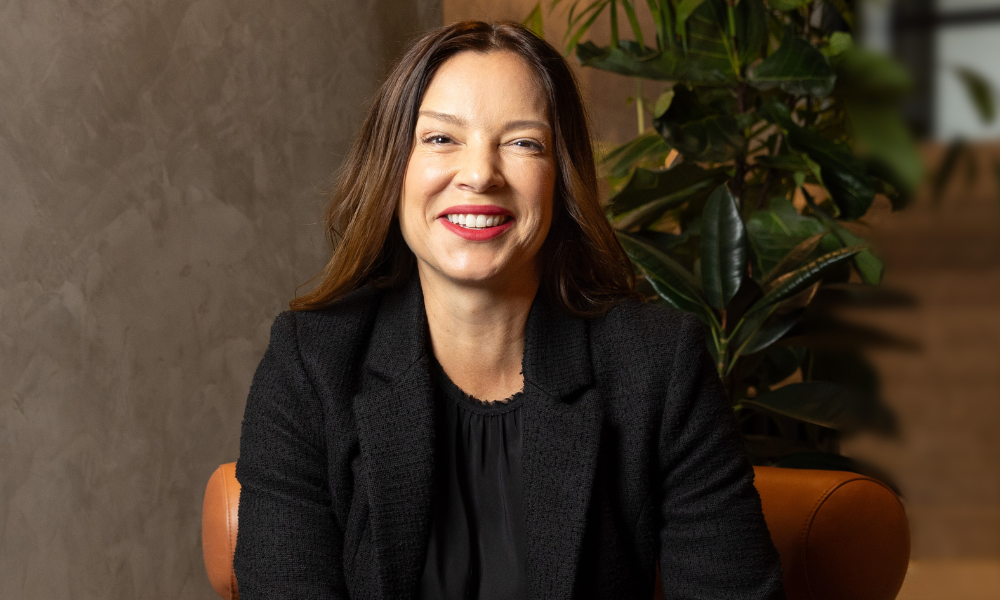Portrayal of brokers as wealthy, driven by commissions is false, industry says

As the fallout from the controversial AFR columns criticising brokers continues, award-winning mortgage broker Cullen Haynes has launched a spirited defence of his fellow brokers.
Haynes (pictured above), who appeared in MPA’s Top 100 Brokers list between 2020 and 2022, is the director of sales at Sydney-based Legal Home Loans, the only mortgage broking service for lawyers, barristers and partners in Australia.
Three articles appeared in the Australian Financial Review last weekend, two of which were columns written by Karen Maley.
These depicted mortgage brokers as wealthy and earning more than bankers, costing customers more money due to commissions, with the balance of power in the brokers’ court rather than banks.
The columns also suggested brokers’ commissions were opaque to customers, and that a conflict of interest arose when lenders lifted commissions to win a greater share of home loans from brokers.
Hayne felt so strongly about what he said were the inaccuracies in the AFR articles that he filmed a TikTok video (see below), dispelling four misconceptions – that using brokers cost customers more; that some banks paid brokers higher commissions; that sole traders were earning over $500,000 per annum, and that brokers are at war with the banks.
MFAA CEO Anja Pannek (pictured below) was also given a right of reply in the AFR, with her opinion piece on the website pointing out that brokers were not at war with banks, but banks were in competition with each other.
Haynes has been a broker for six years, helping to set up Legal Home Loans in 2018 with his business partner and director Andrew Johson. Prior to becoming a broker, Haynes worked in the leasing and private banking team at Macquarie Bank
Hayne said when Pannek responded to the AFR columns in defence of brokers, it validated his own thinking and prompted to make the video
He said the AFR articles were adversarial.
“I thought I was reading something from the ‘80s or 90s because though they were alluding to the fact that brokers get paid more depending on the banks they go with, that the average broker earning over $500,000,” Haynes said.
“It just sounded like they were pitching the banks against us and it read very much like finally the banks are clawing back business from brokers.
“It wasn't presenting us in the best light because now almost 75% of all loans are written through broker. We're helping people self-actualise through finance. We're here to provide choice, we’re not here to put someone in a product.”
Haynes said the reason he and Johnson started Legal Home Loans was because lawyers were able to access 90% LVR home loans through four banks and not pay LMI.
“For 15 minutes that they spend with us, we save them 31 in billable hours or 31 hours of application time. Now they could go from bank to bank and broker to broker to work that out, but we know which banks do that.”
Hayne said he was aware of plenty of lawyers who had paid LMI because they weren’t aware of the product and had gone into a bank that didn’t offer that type of loan.
Not fighting with banks
“We’re not at war with the banks,” Haynes said. “We are platinum brokers, we are in the top 1%, so we get preferential rates, turnaround times and credit policies, so they [the banks] obviously see the value that we bring.”
“I'm not going to drag them in the mud and say we are at war with banks – that would be me saying we're at war with the people that give us these privileged tools to help our clients and it's just simply not the case.”
No difference in commissions
The claim that brokers get paid more depending on the bank that they go with was demonstrably false, said Haynes.
“Brokers are there not to choose the bank that aligns best for them, but aligns best with the client.
“I think that's all been corrected now [banks paying the same commissions] so for residential loans, if it's $1 million we get paid the same with any bank we go with, it doesn't actually change.
“We're not incentivised to go with certain banks over the other.”
Haynes said rates were important for clients and that’s what the broker team at Legal Home Loans looked for.
“But we're quite different to other brokers because we're dealing with legal professionals who are already high-expectation but there's usually something that's outside the box so I tell clients we're in the business of time and we lend on credit policy.
“It would make no sense to me to send a client to a bank where we get a favourable cash incentive when it doesn't actually match their needs.”
Best interests duty
Haynes also took issue with the AFR column which suggested that BID was a tick-box exercise for brokers.
“Best interests duty does force brokers to do the best thing by the client.
“We're probably an anomaly because we started our business at the worst time to become a broker. We started during the [Hayne] royal commission, so we didn't learn any of the bad habits that other banks and brokers did, we had to start from scratch.
“We had to get all the information, so we're probably the best example of a compliant broker there is, we started under a baptism of fire.”
Broker incomes exaggerated
Haynes said the claim that every broker was earning more than $500,000 a year was also wrong.
“Sure, big outfits, they get to that level but I don't know many brokers, at least sole traders, that would be earning that amount because there's only a certain amount of loans you could do as a sole trader before the wheels start falling off. I don't think many brokers are at that level.”
“They painted this picture that every single broker is the Wolf of Wall Street, driving Lamborghinis and ripping people off, but I don't feel that that's the case. I don't think that's the right picture to paint to people.”
Commissions are communicated
Legal Home Loans aggregates with Connective and Haynes said Connective “did a great job in helping us as brokers show clients how much we earn”.
“It's written very clearly based on the amount of the loan, how much we get in upfront and how much we get in in the trail commission,” he said.
Haynes said he had barristers ask him how he can say he's working in their best interest when he gets paid by the bank.
“I explain to them we don't get paid until settlement and the whole point of a trail commission is to make sure that every six to 12 months we are giving you the best service possible and making sure that: A, that bank is looking after you, and B, if they're not, looking elsewhere. That's what a good broker should be doing.”
Haynes said the questions he asked direct clients of banks included “when was the last time your private banker gave you a call?” and “what rate are you on?”
“And if you can't remember the last time your banker gave you a call and your rate is 6.5%-plus, that tells me that your bank or broker is not looking after you and we're certainly not an example of that.”
One of the brokerage’s ways to advocate for clients was when someone came to them wanting to refinance, the team shared the market rates and encouraged the person to talk to the bank’s retention team to see if they could reduce the interest rate.
“If they don't bring down your rate, then we can look at options, and that saves everyone a lot of time because if the bank comes back and says, ‘We're going to match what your broker can do,’ happy days – then we've saved this person, they’ll remember – that's the cost of that's a long term play,” Haynes said.
“We see that as time saved for our business, but it's helping other people lower their rate.”
MFAA’s response to columns
Pannek, in an opinion piece in the AFR on May 29, said the headlines about brokers being at war with banks were misguided.
“They also ignore the most important player in this ‘war’: Australian borrowers,” Pannek wrote.
“However, if some of the larger lenders are seeking to disrupt mortgage brokers and steer borrowers back into their branches, then they’re actually declaring war on home loan borrowers, for the benefit of their shareholders.
“The mortgage broking industry is not in competition with banks. Banks are in competition with each other.”

Pannek said major lenders had been losing share to agile, nimble, low-cost, customer-focused lenders for a decade now.
“Why would anyone think increased competition driven by a broker network – leading to lower prices for consumers – is a bad thing?
“To be clear, I believe that our robust financial system that consistently rides the waves of recessions – and once-in-a-generation events – needs stable, well run major lending institutions.”
Pannek said attempts to shift blame during quarterly earnings announcements onto the broking industry were a thinly-veiled push to drive higher margins at the expense of Australian borrowers.
“Suggestions that mortgage brokers are ‘eating the banks’ lunch’ and that ‘banks need to wage war on mortgage brokers’, are way off the mark.
“The major lenders’ market share is not being ‘taken’ by the mortgage broking industry. It is being taken by more than 100 other lenders in the market, many of whom are accessed only via brokers, not branches. It’s a good thing too, because if you live in a regional area, your choice of bank branches to borrow from is likely one, or none.
“Positioning banks as competing with brokers is like saying Hilton hotels is competing with travel agents, instead of Hyatt and Sofitel. It completely misrepresents how the mortgage broking industry works.”
Pannek said brokers were not at war with banks. “We act as distributors of their products.”
“And when a bank acquires a new customer via a broker without having to do anything, they pay a commission. That bank doesn’t pay rent, overheads, bank lenders’ salaries, super – the list goes on. Are they suggesting that borrowers should pay banks to become their customers by paying the broker commission?”
Brokers drove competition and had helped create a more competitive market where it was cheaper for all Australians to access credit, she said.
“We have a responsibility and a legal duty to find the most appropriate deal for borrowers under the Best Interest Duty, which has been in place for some years now,” Pannek wrote.
“We provide choice, value and guidance to millions of Australian borrowers, and access to more than 100 lenders, who all have to compete in a market – not a monopoly – for borrower’s business.”
Pannek said combined net profits of more than $30 billion last year for the Big Four banks “suggests they’re doing just fine”.
“Competition is here to stay, it’s being driven by mortgage brokers, and that is a good thing for Australian borrowers who are paying less interest on every loan because of the rise of the broking channel,” she wrote. “While 72% of loans are originated by a broker, the other 28% benefit from the competition driven by brokers as the industry drives lower prices on all mortgages.”
Share your thoughts on the recent negative portrayal of brokers by commenting below



